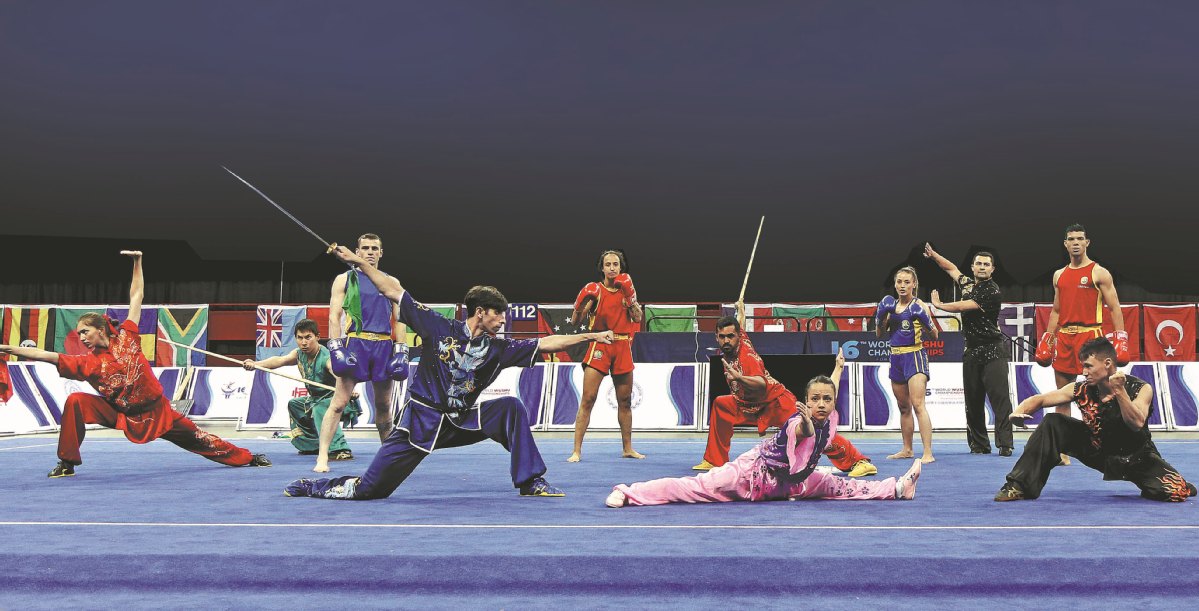Wushu popularity spreads far and wide


Competitors from more than 50 countries and regions take part in world championships in US
Editor's note: As the 16th World Wushu Championships concluded last week in Texas, China Daily reviews how this inspirational form of martial arts affects the lives of hundreds of competitors far beyond the arena.
Love was in the air as hundreds of competitors from more than 50 countries and regions gathered in Fort Worth, Texas, to compete in the 16th World Wushu Championships for about a week.
It was the love for wushu shown by athletes at the championships in mid-November.
Fran Kyis, a 22-year-old medical student from Croatia, was training in swimming and other sports when a coach asked him to try sanda (full-contact fighting like boxing) when he was 17.
"I tried and fell in love with it," said Kyis who has won second place twice in European championships. "I like it because it's a dynamic sport. It's a great exercise to develop the entire body, all the muscle groups. It's very technical, you must be very intelligent to train and to be good at it."
For Oryna Ivanova from Ukraine, her love for wushu was ignited by a flyer on campus when she was in elementary school at the age of 6.
"Wushu inspires me, makes me strong, makes me happy, makes me stronger every day. This is not just a sport, it's also a philosophy as my coaches taught me," said the 16-year-old.
Despite her young age, she has already competed in China twice in tai chi. "Wushu is popular in Ukraine, in every region there is a training center," Oryna said.
Oliver Hassel, coach of the Switzerland team, first learned about wushu on the silver screen.
"I saw martial arts in movies, and I had always wanted to do that," he said. People who have inspired him on the screen include Bruce Lee, Jet Li and Chuck Norris.
Hassel said he has been fighting since he was 17 and competed in the 1995 championships held in Baltimore.
Twenty-eight years later, he returned to the United States as a coach after retiring in 2015. Over the years, he has fought in various events in Harbin, Xi'an, Chongqing and Beijing.
The wushu community in Switzerland is composed mostly of native residents, Hassel said.
"Swiss people went to China and brought it back to Switzerland. Tai chi and qigong (a Chinese breathing exercise) community is quite big there," he said. "For us it's a hobby, but a beautiful hobby. We love it."


















